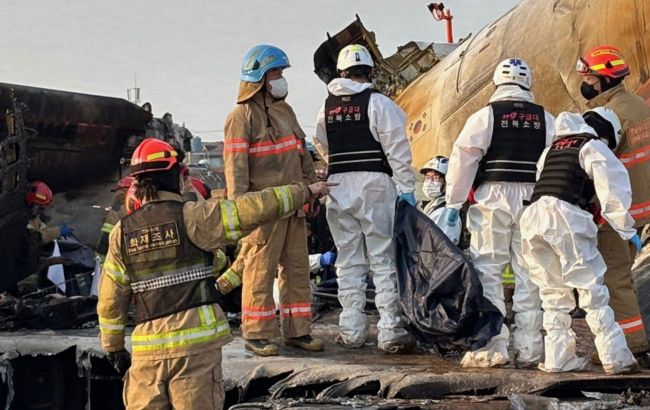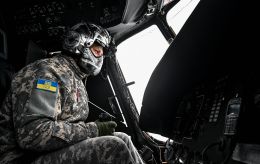Plane crash in South Korea: Investigation focuses on bird strike, landing gear failure
 Illustrative photo: Investigation into the South Korean plane crash will focus on bird strike and landing gear failure (Getty Images)
Illustrative photo: Investigation into the South Korean plane crash will focus on bird strike and landing gear failure (Getty Images)
Investigators looking into the causes of the Jeju Air Boeing 737-800 plane crash in South Korea will focus on a collision with birds and landing gear failure, reports Bloomberg.
Despite the fact that the plane was almost completely destroyed in the crash, investigators will eventually receive the necessary data to restore the picture of events. One of the key points will be information from two flight data recorders that have already been recovered from the wreckage. The analysis of one of the recorders may take a little longer due to its damage.
Investigators say that it is too early to speculate on what could have caused the crash. Collisions with birds are not unusual, but they rarely lead to a plane crash, as the planes can operate on the same engine for some time. It also remains unclear why the landing gear of the plane did not deploy and whether there is a connection between this malfunction and the collision with the birds.
Bloomberg adds that the pilot of the Boeing 737-800 gave an emergency signal a few minutes after the control tower warned of the bird attack.
“ He aborted his first landing, started a go-around and switched direction on the runway in his second attempt. The control tower granted clearance to land in the opposite direction, and officials said it’s unlikely that the runway length caused the crash,” Bloomberg writes.
Airplane crash in South Korea
On Sunday, December 29, a plane crash involving a Boeing 737-800 passenger plane occurred in the South Korean city of Muan. The plane belonged to Jeju Air and was operating a flight from Bangkok under the number 7C2216. Most of the passengers on board were citizens of the Republic of Korea.
Due to technical problems, the plane was unable to release the landing gear. It went off the runway, collided with the outer wall of the airport, and caught fire.
The plane crash killed 179 people.
More information about this tragic incident - in RBC-Ukraine's report.

